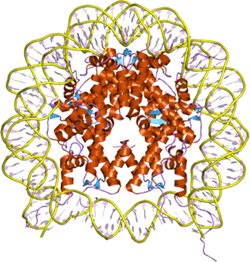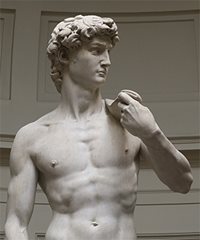More thoughts on folding and form
We were pleased to read Sudha Neelam’s pleasant and stimulating essay, “The art of paper folding and the science of protein folding,”in ASBMB Today.

Outlining the similarity between an origami and a folded protein is quite popular, since in both the form combines beauty and functional relevance. In both cases, the mechanism of folding to achieve the final state is complex. This similarity has been taken further to highlight that a misfolded origami mimics in some way a misfolded protein seen at the onset of neurodegenerative diseases that develop via irreversible population of an amyloid state by extensive misaggregation.

European Bioinformatics Institute
We should, however, recall one difference between folding a paper sheet and a polypeptide chain, a difference that is of fundamental significance.
The complex course of action to fold a paper sheet to produce origami of a chosen shape demands that precise information be injected in the procedure by an operator (in this specific case, Nihkil, the son of the writer Sudha Neelam). The order of guided steps is essential to overcome the loss of entropy coupled to the creation of an ordered object, such as a classical origami sculpture.

In the case of folding a complex 3D structurestarting from one disordered polypeptide, the information guiding the series of events/chemical steps leading to the globular protein is imprinted within the amino acid sequence. The primary structure itself is also the code carrying the instructions on how to fold in water and thereby the information to overcome the huge, unfavorable entropy loss.
In water, the amino acid sequence of a protein conforms beautifully to Aristotle’s definition of substance, the intimate ensemble of matter and form (in Greek: “synolon”), insofar as the amino acid sequence contains in itself the reason for becoming what it is (in Latin: “substantia causa sui”). In this respect, we can compare the amino acid sequence to the marble block as seen by Michelangelo Buonarroti. In Michelangelo’s view, the artist need only bring into actuality the form that already lies in the marble block by chiseling away the superfluous material.
Likewise, as shown by Nobel laureate Christian Anfinsen, the amino acid sequence embeds from the beginning the properties that will characterize the protein in the final functionally competent native state, needing only water to pass from potentiality into actuality.
Enjoy reading ASBMB Today?
Become a member to receive the print edition four times a year and the digital edition monthly.
Learn moreGet the latest from ASBMB Today
Enter your email address, and we’ll send you a weekly email with recent articles, interviews and more.
Latest in Opinions
Opinions highlights or most popular articles

Sketching, scribbling and scicomm
Graduate student Ari Paiz describes how her love of science and art blend to make her an effective science communicator.

Embrace your neurodivergence and flourish in college
This guide offers practical advice on setting yourself up for success — learn how to leverage campus resources, work with professors and embrace your strengths.

Survival tools for a neurodivergent brain in academia
Working in academia is hard, and being neurodivergent makes it harder. Here are a few tools that may help, from a Ph.D. student with ADHD.

Hidden strengths of an autistic scientist
Navigating the world of scientific research as an autistic scientist comes with unique challenges —microaggressions, communication hurdles and the constant pressure to conform to social norms, postbaccalaureate student Taylor Stolberg writes.

Black excellence in biotech: Shaping the future of an industry
This Black History Month, we highlight the impact of DEI initiatives, trailblazing scientists and industry leaders working to create a more inclusive and scientific community. Discover how you can be part of the movement.

Attend ASBMB’s career and education fair
Attending the ASBMB career and education fair is a great way to explore new opportunities, make valuable connections and gain insights into potential career paths.


